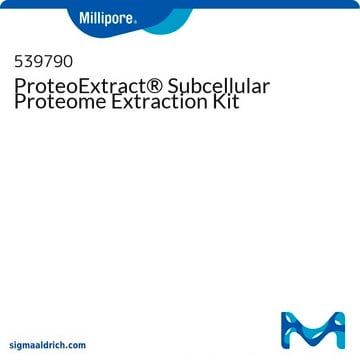P0113
PQ401
≥98% (HPLC), powder
Synonym(s):
IGF-1R Inhibitor II, N-(5-Chloro-2-methoxyphenyl)-N′-(2-methylquinolin-4-yl)urea
About This Item
Recommended Products
Quality Level
Assay
≥98% (HPLC)
form
powder
color
white
solubility
DMSO: >10 mg/mL
H2O: <2 mg/mL
storage temp.
2-8°C
SMILES string
COc1ccc(Cl)cc1NC(=O)Nc2cc(C)nc3ccccc23
InChI
1S/C18H16ClN3O2/c1-11-9-15(13-5-3-4-6-14(13)20-11)21-18(23)22-16-10-12(19)7-8-17(16)24-2/h3-10H,1-2H3,(H2,20,21,22,23)
InChI key
YBLWOZUPHDKFOT-UHFFFAOYSA-N
Application
- an insulin growth factor-1 receptor (IGF-IR) inhibitor in H1299 cells to test its effect on migration suppression
- a reference inhibitor in dose-response measurements studies
- an IGF1R inhibitor in sirtuin 6 (SIRT6)-deficient cardiomyocytes to test its effect on hypertrophy inhibition
Biochem/physiol Actions
Features and Benefits
Storage Class Code
11 - Combustible Solids
WGK
WGK 3
Flash Point(F)
Not applicable
Flash Point(C)
Not applicable
Personal Protective Equipment
Certificates of Analysis (COA)
Search for Certificates of Analysis (COA) by entering the products Lot/Batch Number. Lot and Batch Numbers can be found on a product’s label following the words ‘Lot’ or ‘Batch’.
Already Own This Product?
Find documentation for the products that you have recently purchased in the Document Library.
Our team of scientists has experience in all areas of research including Life Science, Material Science, Chemical Synthesis, Chromatography, Analytical and many others.
Contact Technical Service








